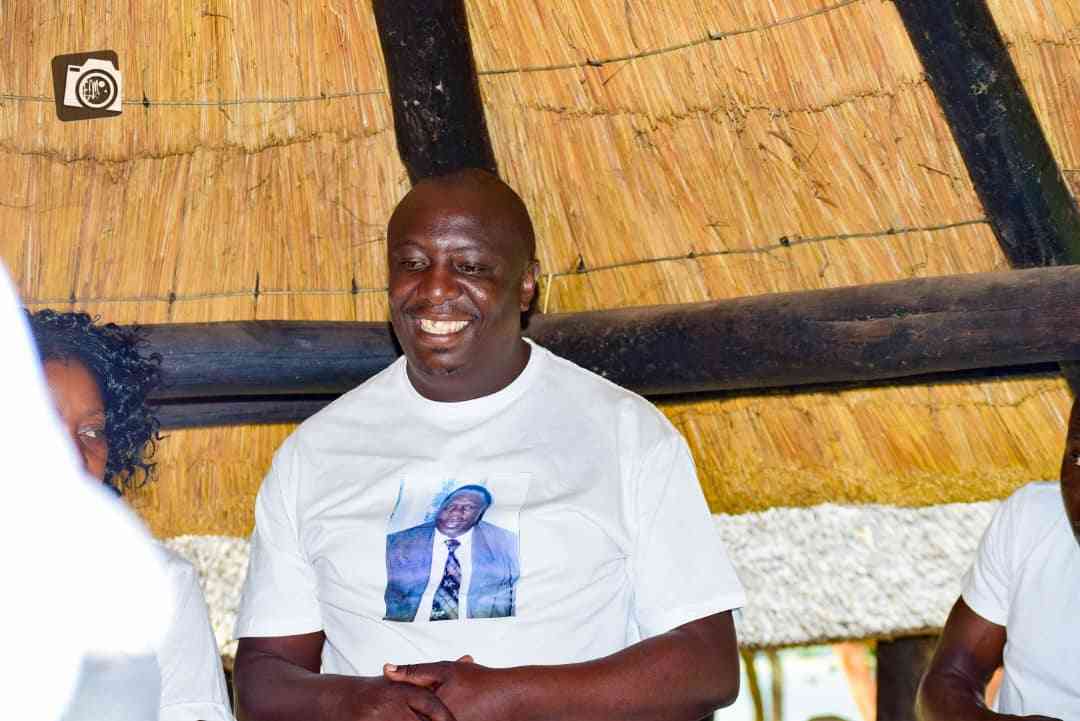
BY NOMALANGA KABANZI
South Africa-based veteran gospel musician Bishop Ollah Juru is back with a bang following the release of his 12th album that is laden with social commentary.
The Rhabahoma hitmaker released a six-track album lased with human interest lyrics well-blended with fast beats on songs Sefa Mashoko, Kufa Kuripo, Shave Reurombe, Nzou Nembwa, Baba and Mujombonono.
Sefa Mashoko is a song that urges people to have a good diction as inappropriate words can break relationships.
Juru sings that words can either make or break relations; hence they ought to be chosen wisely.
He urged people to be accommodative of others, regardless of their status, social standing, ability or lack of but should embrace each other and live as one.
Juru added that in life people will always need each other and should, therefore, lend each other a helping hand.
The message is so touching on the song Kufa Kuripo as death is so difficult to fathom. It is a reality that “every person born out of a woman has few days on earth”, but this is a bitter pill to swallow.
- Chamisa under fire over US$120K donation
- Mavhunga puts DeMbare into Chibuku quarterfinals
- Pension funds bet on Cabora Bassa oilfields
- Councils defy govt fire tender directive
Keep Reading
People have failed to be accustomed to death as the departure of a loved one is painful, hence Juru, in an allegorical message urges a son to be worry of death and do good while alive. Juru pointed out that the giver and keeper of life is God who should be praised by all and sundry.
True to the proverb that even seated elders can see far that a standing youth, Juru urges the young to listen to the advice given by those who have seen it all in life because there is nothing new under the sun. Indeed, life is so precious that the song urges people to preserve it and reap the rewards of long life.
Life has its fate and sometimes evil spirits can haunt people and deny them chances to prosper and suffer in abject poverty as Juru sang on the song Shave Reurombe.
When things do not go according to plan, people have a tendency to blame either witchcraft or some bad spell casted on others by family relations. In that typical African concept, a nephew complains to his uncle of some evil spirits casting bad omens on family members so that whatever they intend to do crumbles.
The nephew asked the uncle why he was not doing anything to cast out the evil spirit so that they can enjoy good living like other normal families free from such spirits.
The old Shona adage Usaenzanisa nguwo nedzaTarubva (do not compare your belongings with others) came clean on the song Nzou nembwa. The song is about opportunities that do not come at the same time by differs according to people.
Juru sang that people are born with their talents and they mature differently just like the way elephant’s gestation period differs with a dog’s. Therefore, Juru urged people to wait for their chances to make it in life than to give up early.
On the song Baba, Juru urges people to eat a humble pie to apologies and seek reconciliation whenever they wrong their parents. The song is a campaign against domestic violence where children side with their mother to mete violence against their father. Whether it was be design or coincidence, these children faced misfortunes in their life and blamed it on the assault cases of their father. Upon realisation that they had done a bad thing against their father, they swallowed their pride and apologised to him promising not to do such an evil act on him again.
Mujombonono is a song that preaches about unity in families warning people who are bent on causing disharmony in other people’s families.
Juru said the album cuts across the social divide.
“This album mainly touches on issues that affect people in their everyday life. It is the duty of musicians to tackle issues that affect people in their life and proffer solution to people in such circumstances,” he said.
“As musicians, we have a way to say out such issues in a social way that does not negate those in that situation.”










